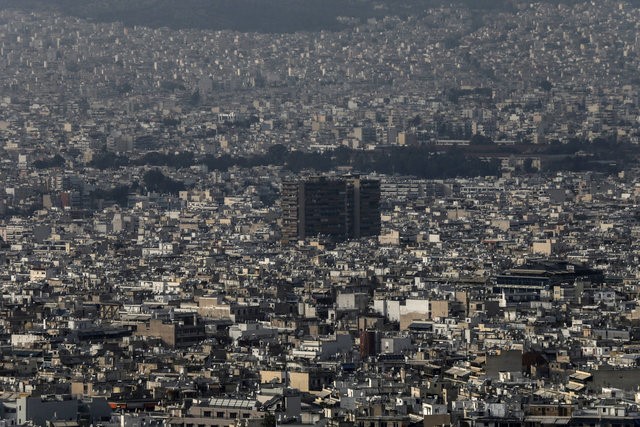By George Georgiopoulos
ATHENS (Reuters) - Greek residential property prices declined more slowly in the second quarter compared to the previous three-month period, suggesting they could be stabilising as a recession has eased.
Property accounts for a large chunk of household wealth in Greece, which has one of the highest home ownership rates in Europe -- 80 percent versus a European Union average of 70 percent, according to the European Mortgage Federation.
Bank of Greece data showed apartment prices fell by 2.7 percent in the second quarter of 2016 from a year earlier, with the annual pace of price declines decelerating from 4.7 percent in the first quarter.
The price slide has been easing since a 10.8 percent fall in 2013; market values for residential real estate shed 7.5 percent in 2014 and 5.0 percent last year.
Economists say the slowing downtrend in home prices could be pointing to stabilisation soon as the second quarter's drop was the slowest since the first three months of 2010.
"The encouraging sign is that the real estate market is reacting to the milder recession and an improving trend in the labour market during a period when liquidity conditions remain tight," National Bank economist Nikos Magginas said.
Greece's real estate market has suffered from property taxes imposed to plug budget deficits, a tight credit market and a jobless rate hovering around 23.5 percent - the highest in the 19-nation euro zone.
Residential property prices have dropped by 41.4 percent from a peak hit in 2008, when the country's protracted recession began.
Greece was pushed to the brink of default by a debt crisis that at one stage jeopardised its membership of the euro zone single currency bloc. Its economic prospects have improved since it signed up to a new bailout package worth up to 86 billion euros ($97.06 billion) a year ago.
Apart from their negative effect on household wealth, falling property prices also affect collateral values on banks' outstanding real estate loans.
Boosted as ever by tourism, Greece's economy expanded 0.3 percent in the second quarter compared with the first three months of 2016, growing by a faster-than-expected pace.
The European Commission projects a 0.3 percent recession in Greece this year and economic activity rebounding by 2.7 percent in 2017.
